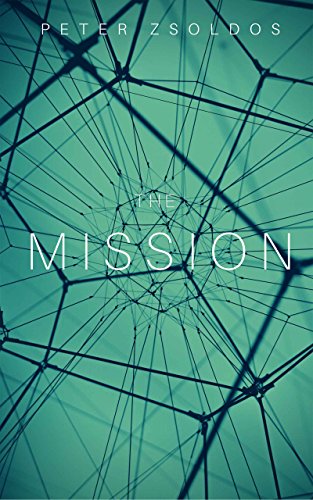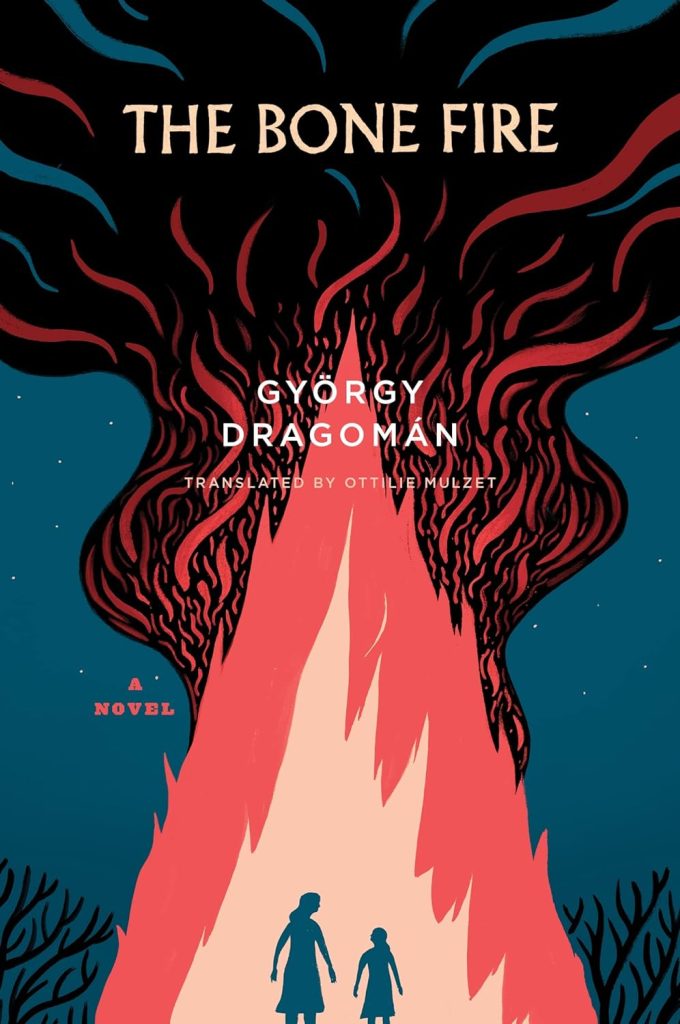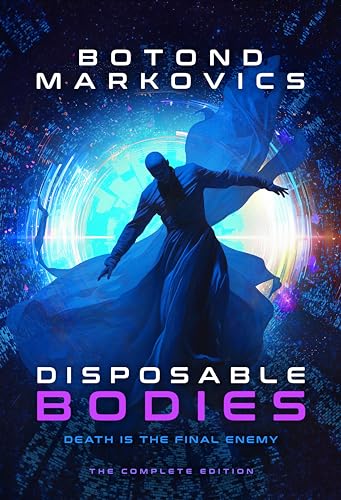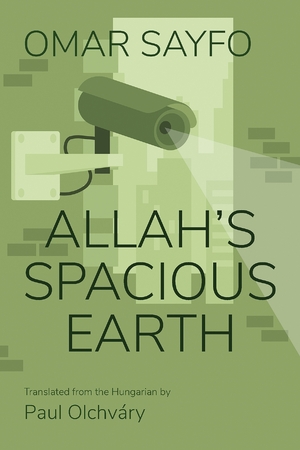
The Sinistra Zone (1992) by Ádám Bodor, translated by Paul Olchváry (New Directions, 2013)
“Entering a weird, remote hamlet, Andrei calls himself “a simple wayfarer,” but he is in fact highly compromised: he has no identity papers. Taken under the wing of the military zone’s commander, Andrei is first assigned to guard the blueberries that supply a nearby bear reserve. He is surrounded by human wrecks, supernatural umbrellas, birds carrying plagues, albino twins. The bears — and an affair with a married woman — occupy Andrei until his protector is replaced by a new female commander, “a slender creature, quiet, diaphanous, like a dragonfly,” and yet an iron-fisted harridan. As things grow ever more alarming, Andrei becomes a “corpse watchman,” standing guard over the dead to check for any signs of life, and then ..”

The Mission (1971) by Péter Zsoldos, translated by András Szabados (Profiford Bt., 2018)
The Mission is itself a heady mix of ideas and thought-experiments concerning “transplanted personalities,” human evolution (both on Earth and on an unnamed extrasolar planet), first contact, and advanced technology. When a ship carrying explorers and scientists from Earth lands on a populated planet, the entire evolutionary course of the planet’s inhabitants is altered. The scientists’ ethnographic research into the society of seemingly-prehistoric humans that they find is interrupted when an unexplained accident kills or maims everyone on board. Gill, the cyberneticist and only-remaining crewmember able to function (for at least a little while) uses his last hours to frantically prepare the ship’s brain to carry out a necessary part of the Mission. The ship then lures Umu, one of the primitive humans, on board (through light and sound waves) and, with a special instrument called a “consociator,” melds together its consciousness with Gill’s, turning the barely-articulate human into a sophisticated cybernetics expert in the blink of an eye. From there, the new Gill/Umu captures more of Umu’s tribe and uploads the consciousnesses of the rest of the former crewmembers into them. The Mission, then, can continue, since, after all, the original crewmembers may be dead, but their minds (experience and knowledge) live on and can deliver to Earth the information that has been so painstakingly gathered about the planet…

The Bone Fire (2014) by György Dragomán, translated by Ottilie Mulzet (Mariner Books, 2021)
From an award-winning and internationally acclaimed European writer: A chilling and suspenseful novel set in the wake of a violent revolution about a young girl rescued from an orphanage by an otherworldly grandmother she’s never met

The Birds of Verhovina (2011) by Ádám Bodor, translated by Peter Sherwood (Jantar Publishing, 2021)
The reader arrives in Ádám Bodor’s world, the periphery of civilization, at the break of dawn. Adam, the foster son of Brigadier Anatol Korkodus is waiting at the dilapidated station for a boy who is arriving from a reformatory. Soon afterwards, Korkodus is arrested for unfathomable reasons. Yet this decaying and sinister world is not devoid of a certain joie de vivre: people eat gourmet dishes, point out their interlocutor’s hidden motives with incredibly dark humor and enjoy the region’s stunning natural beauty.

Disposable Bodies (Books 1-3) by Botond Markovics, translated by Austin Wagner (self-pub, 2023)
From Hungary’s leading science-fiction author Botond Markovics, Disposable Bodies is the multi award-winning standalone story of humanity’s desperate battle for a transhuman future, immortality, and freedom. Disposable Bodies won the Zsoldos Péter Literary Award and the Monolith Award in Hungary.

Allah’s Spacious Earth (2017) by Omar Sayfo, translated by Paul Olchváry (Syracuse UP, 2023)
Allah’s Spacious Earth is a stunningly fresh and timely political dystopia that depicts the tragic yet very real consequences of tensions between majority populations and Muslim minorities in the Western world. The novel is set in an imagined future where anti-Muslim sentiment and political pressure lead to a community being cut off from the rest of society. Told from the perspective of Nasim, a young Muslim living in the Zone—an urban area within one of the states forming the Pan-European Federation—the story follows his journey as he struggles with the restrictions imposed upon him along with the expectations of his community.
